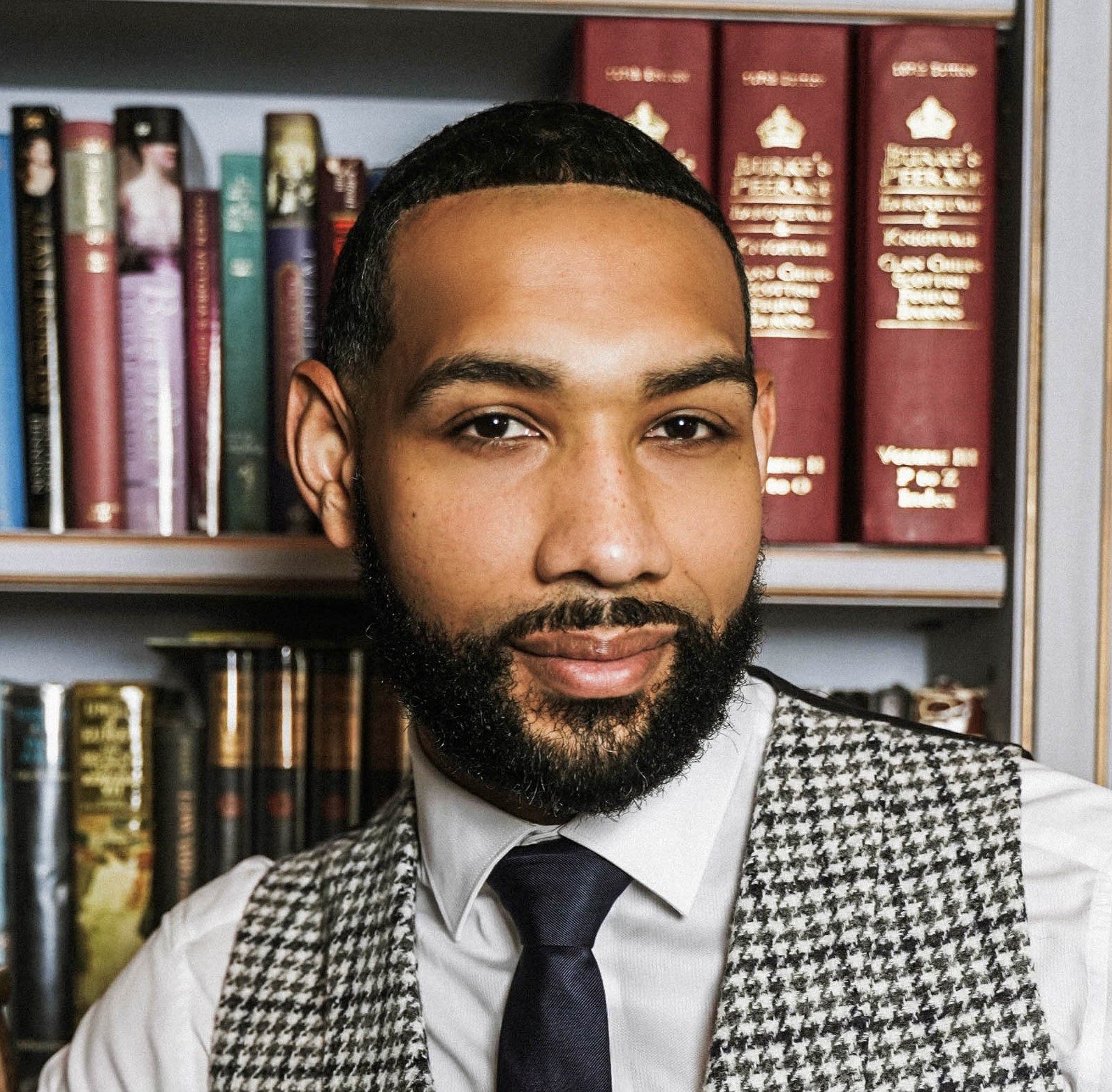Prison inmates are once again eligible for Pell Grants to pay for their college education while they serve their sentences, thanks to a provision tucked into the 5,000 pages of the omnibus appropriations bill recently passed by Congress and signed into law by President Donald Trump.
Part of a broader movement toward criminal justice reform, the provision reverses a ban first implemented in 1994 as part of the Violent Crime Control and Law Enforcement Act, a tough-on-crime approach backed by then-President Bill Clinton and popular in the 1990s. It also formalizes and makes permanent a pilot program instituted under President Barack Obama that extended the grants to thousands of inmates, known as “Second Chance Pell.”
College changed inmate’s life

One of the people who lobbied to expand the pilot program and make it permanent was Dyjuan Tatro, who knows first-hand the benefits of college education for people behind bars.
A ninth-grade dropout, Tatro was serving a 12-year sentence for assault at Five Points Correctional Facility in New York in 2007 when he saw a 60 Minutes segment on a program for incarcerated people offered by Bard College. In prison, Tatro said, “There was absolutely nothing to do” in a system that was predicated entirely on punishment and not at all on rehabilitation.
RELATED: Criminal history continues punishment far beyond prison term
RELATED: Study: As jail releases increased during pandemic, Black inmates were left behind
Tatro decided he had to get into the Bard program, which was not offered in his prison. He spent the next six years, he said, working against the institutional bureaucracy to get transferred to a prison where he could apply to the Prison Initiative.
On his third or fourth attempt to get transferred, he landed at Eastern Correctional Facility, where Bard was offering courses. He says he took the entrance exam for the competitive program and gained admission on his first try.
Tatro described the program as akin to satellite campuses of the college, complete with libraries, computer programs and the same professors and courses as available at any other Bard campus. Ultimately, he said, he decided to major in math.
He was released from prison and completed his final year at Bard on the outside.
The former ninth-grade dropout’s senior project: “Applied mathematics and biology modeling cancer cell proliferation with differential equations.”
Pell grants were not available when Tatro attended. His education was entirely funded by private donors. But he says the example he and other Bard Prison Initiative students set played a large part in re-establishing the grants for those in prison.
Prison graduates defied expectations
They set a high academic bar, Tatro said, and defied expectations. Some graduates walked out of prison into graduate degree programs at Ivy League institutions. Others went back to make changes in the communities and the institutions that led to their being incarcerated.
Tatro went to work in politics after he graduated and then went on to manage a data collection project for a major cell phone developer. He decided he wanted to work on the issue of public funding for college in prison, so he returned to the Bard Prison Initiative where he is now government affairs officer.
He used himself as an example when visiting with members of Congress lobbying for the restoration of Pell in prison.
He is successful in ways his two brothers are not. Both brothers have served time in prison, Tatro said, and both are struggling to scratch out a living, going from paycheck to paycheck, struggling to overcome their criminal history.
“In general,” he said, “if you have a college degree, you are more employable than someone who doesn’t.” For people who have been incarcerated, he said, the value added is “exponential.”
Pell expanded overall; hundreds of thousands to benefit
The provision that reinstated Pell to prisons is part of a bipartisan agreement that expanded the Pell Grant program overall, increasing access for hundreds of thousands of students and extending larger awards to current recipients.
The restoration of Pell eligibility was welcomed by the Vera Institute of Justice, which works on prison reform issues. “Allowing people in prison to access higher education is a critical step toward a more equitable society, especially for Black and brown people who have historically been sentenced to prison at higher rates and trapped in cycles of incarceration,” said Vera President and Director Nicholas Turner in a statement. “Pell Grants are one of the most straightforward and effective ways to create opportunities for incarcerated people and to strengthen their families and communities when they come home.”
According to Vera, 130 colleges in 42 states and the District of Columbia participate in the Second Chance Pell program, which could have expired as a pilot program if the Pell measure had not been enacted into law. Participating students have been awarded more than 4,500 bachelor’s degrees, associate degrees, postsecondary diplomas and certificates.
The institute reports that when inmates can access postsecondary education, safety improves for both the prisoners and corrections employees.
Different research has found that incarcerated people participating in education programs are 28% or 43% less likely to commit crimes after release. Research has been mixed about whether prison education programs lead to better employment prospects for former inmates. However, Vera cites research showing people who participate in education programs while in prison are more likely to get jobs after release and they serve as role models for families and friends who are then more likely to pursue higher education.
Tatro said one component of college programs for inmates that people may not recognize is the social component. He said he developed social skills interacting with professors and college peers that set a baseline for how to interface when he returned to society.
People who are incarcerated can spend their entire sentences locked in cages interacting only with other prisoners and facility staff and then be released into the community and expected to function normally.
“Something that’s been so valuable to me today is the non-cognitive skills I learned throughout my educational journey that are just as important as my education,” he said.
The punitive, tough-on-crime approach that was so popular in the 1990s has lost favor in recent years, particularly with the rise of criminal justice reform as a priority. In November, a poll found that 81% of Black voters, 75% of Latin voters and 67% of whites favored Pell reinstatement for prisoners.
As of then, more than 16,000 students had enrolled in college programs while incarcerated with Pell assistance. It was estimated that number could grow to more than 450,000 with the program fully reinstated.
Next goal: state prison college programs
Tatro said that when Pell was banned in prisons, states also eliminated education programs they funded. He plans to work on restoring New York’s prison education funding and expects advocates around the country to do the same in other states, meaning the impact of the new law should ripple even further.
Tatro said he was gratified when the Pell provision was passed by Congress and signed by the president.
“This is not the moment I think any of us expected it to happen, but I wasn’t surprised,” he said. “I’ve been working on it.”
Tatro noted that the law provides for “clean access” to the grants for those incarcerated, not carving out any exceptions for certain offenses or otherwise.
Tatro sees the bill as an “acknowledgement that the criminal justice system in this country is deeply flawed, that the prison system in this country is failed…
“We should do radical things to change that,” Tatro said. “Donald Trump signing this bill is radical.”
Contact Elaine Silvestrini at [email protected]. Follow her on Twitter at @WriterElaineS.








